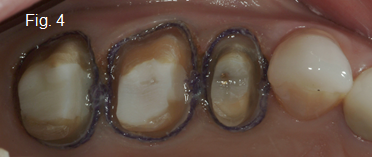 How many times have we heard the phrase, this course will change the way you do dentistry on Monday – or when you go back to the office on Monday… (fill in the blank here)?
How many times have we heard the phrase, this course will change the way you do dentistry on Monday – or when you go back to the office on Monday… (fill in the blank here)?And we continue to believe it. We want to believe it. We need to believe it. Sometimes it actually comes to fruition, at least to a certain extent.
But let's admit it, changing multiple things in a dental practice is like turning the Titanic in the Panama Canal – it's rarely a smooth flowing process.
Let's also agree that it's not always a reflection of us, the dentist, owner, manager, CEO, CFO, CMO, COO, HR manager, IT person or any of our other roles in the practice. Change in a dental practice can be complicated, especially if it affects all of the systems in the practice and it almost always does. Dang…
Let's think about it. If you want to start taking photos of new patients after attending the Facially Generated Treatment Planning workshop, you have to buy a camera, retractors and mirrors and learn how to use them. This will affect your new patient flow, your assistant – and then, you actually have to figure out how you are going to transfer the images from the camera and how you are going to use them.
 If you really understood the benefit of taking alginates for study casts for simple DWUs and making reduction guides after attending the Restorative Design workshop, applying this to your practice will affect your new patient flow, your lab supplies, operatory set-up for treatment – and your assistant might want to understand it too. (Fig. 2-3)
If you really understood the benefit of taking alginates for study casts for simple DWUs and making reduction guides after attending the Restorative Design workshop, applying this to your practice will affect your new patient flow, your lab supplies, operatory set-up for treatment – and your assistant might want to understand it too. (Fig. 2-3) What about a small change like transitioning to a double-cord technique for all indirect restorations? When do you actually place the first layer? When you have space so it actually retracts before you finish your preparation? Or when you are done with the prep which means you might then have more space to refine? But does that mean you will have to re-finish the margins? Won't that take more time? When should your assistant have each cord ready? Have you talked about it with him or her? (Fig. 4)
What about a small change like transitioning to a double-cord technique for all indirect restorations? When do you actually place the first layer? When you have space so it actually retracts before you finish your preparation? Or when you are done with the prep which means you might then have more space to refine? But does that mean you will have to re-finish the margins? Won't that take more time? When should your assistant have each cord ready? Have you talked about it with him or her? (Fig. 4) Now, let's get crazy and assume that you might want to start using an articulator after taking the Occlusion workshop. Which one do you purchase? When will you use it? Does your team understand why you are using it? (Fig. 5)
Now, let's get crazy and assume that you might want to start using an articulator after taking the Occlusion workshop. Which one do you purchase? When will you use it? Does your team understand why you are using it? (Fig. 5)Is it congruent with our vision? What about your short-term and long-term goals? Will you have some intentional follow-up? How will it affect your current systems? What does that mean about what you have been doing? Who will hold you accountable when the road bumps pop up in front of you? You get the idea.
When you are ready and wanting to make changes in your practice on Monday, what will help you actually make the change? How will you implement what you have learned and/or for which you have seen the value?
I think we can all agree that support, accountability, intention, systems and communication all affect implementation of what we really want and need in our lives and in our practices. In future articles, in the monthly and quarterly Spear Digest, I will dive deeper into how to make the post-course Mondays more realistic and predictable. Until then, take a look at your systems, flow, and vision; offer yourself some grace and take pride in what you offer your patients every day – health.

Looking for answers to questions posed in this article? Take your questions to a few thousand dentists, including the esteemed Spear faculty, on Spear's discussion boards. Don't have access? Sign-up for free today.
Comments
July 31st, 2014
August 8th, 2014